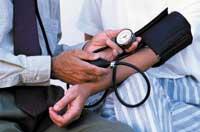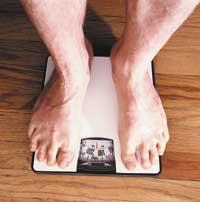How to control hypertension?
What is hypertension?
The force that circulates through the blood vessels of our body is called blood pressure (or blood pressure). When this force is excessive and the passing organs are attacked, hypertension occurs. The main problem of this disease is that it barely produces symptoms. Therefore, it is very important to take a relatively frequent stress (every two years at first, if there are no symptoms, and more often in case of hypertension or other cases of family hypertension).
Why is hypertension produced?

Hypertension is a typical disease or situation, as it is estimated that it has one in four adults; it mainly affects people with overload, smokers or relatives with a history of hypertension. And although 90% of cases cannot identify the cause or causes that cause hypertension, lifestyle directly influences the subsequent evolution of the disease. Fat and salt consumption, sedentary lifestyle, obesity, tobacco and alcohol abuse are very harmful in these cases. Therefore, it is very important to lead a healthy life, both to prevent hypertension, if possible, and to control its evolution in case of onset.
Exercise
Exercising two or three times a week, 20-30 minutes per turn, is very beneficial. In any case you must choose the right sport for each age and physical condition. For older people or people who don't have a habit of intense physical exercise, walking half an hour a day, relatively quickly, can be enough.
Proper dietary habits
Hypertension does not have to start dieting. Eating fresh, natural, simple foods is enough. The Mediterranean diet (see no. 164, in the magazine Elhuyar Zientzia eta Teknika of 2001) is very suitable in the following cases: legumes, vegetables, olive oil and blue fish. The foods to be cut are mainly sausages or sausages, industrial pastries, red meats or meats and foods rich in salt.
Managing stress
Nervousness has been shown to increase blood pressure. For especially nervous people, a solution can be relaxation exercises or yoga. Playing sports or dedicating time to hobbies (painting, home crafts or any other hobby) can help relax those nerves and face life differently.
Obesity, an issue to care for
Weight very negatively influences the evolution of hypertension. Some studies have shown that for every 10 kg of body weight above normal, systolic (high) tension will increase by 3 mm Hg and diastolic (low) by 2.2 mm Hg. For this reason, people with overload have 2 to 3 times more risk of hypertension than people with normal weight, according to experts. Pull out the accounts, if any, as a reader.
Myths about hypertension: Yes or no?

There are widespread myths about hypertension that I would like to clarify here. Is coffee so harmful? Is it essential to quit smoking? Should salt completely disappear from our diet?
Use as little salt as possible
This advice is very important. Once cooked, people with hypertension should never salt. In addition, foods rich in salt (sausages, pre-cooked dishes, prepared dishes sold in cans or containers, etc.) They should also be discarded.
Coffee, maximum two cups
Hypertensive people have no problems drinking two cups of coffee a day. However, if coffee causes nervousness or insomnia, it is better to leave it, since the other two situations are harmful to hypertensive.
Alcohol without excesses
People who have high blood pressure and drink alcohol can usually continue with their favorite drinks, provided they do not exceed two glasses of wine a day or two beers or a glass of brandy (one of the three options, not all three).
Prohibited tobacco
No exceptions, reduced consumption, etc. are useless measures.
Fats in moderation
High-fat foods, especially animal fats (red meats, sausages), produce cholesterol and overload. It is advisable to replace them with vegetables, legumes and fresh fruits, even if it is progressively and partially.
When do we have high tension?
| SYSTOLIC (HIGH) | DIASTOLIC (LOW) | |
Optimal situation | Less than 120 mm Hg | Less than 80 mm Hg |
Normal state | Less than 130 mm Hg | Less than 85 mm Hg |
Mild hypertension | 140-160 mm Hg | Less than 90-100 mm Hg |
Moderate hypertension | 160-180 mm Hg | From 100 to 110 mm Hg |
Severe hypertension | More than 180 mm Hg | More than 110 mm Hg |
Considerations to consider when taking stress The most appropriate places to take tension are medical consultation and medicine. In addition, at present there are some devices that allow to take own tension at home. But for the results to be reliable, some observations should be made:
|
Buletina
Bidali zure helbide elektronikoa eta jaso asteroko buletina zure sarrera-ontzian








